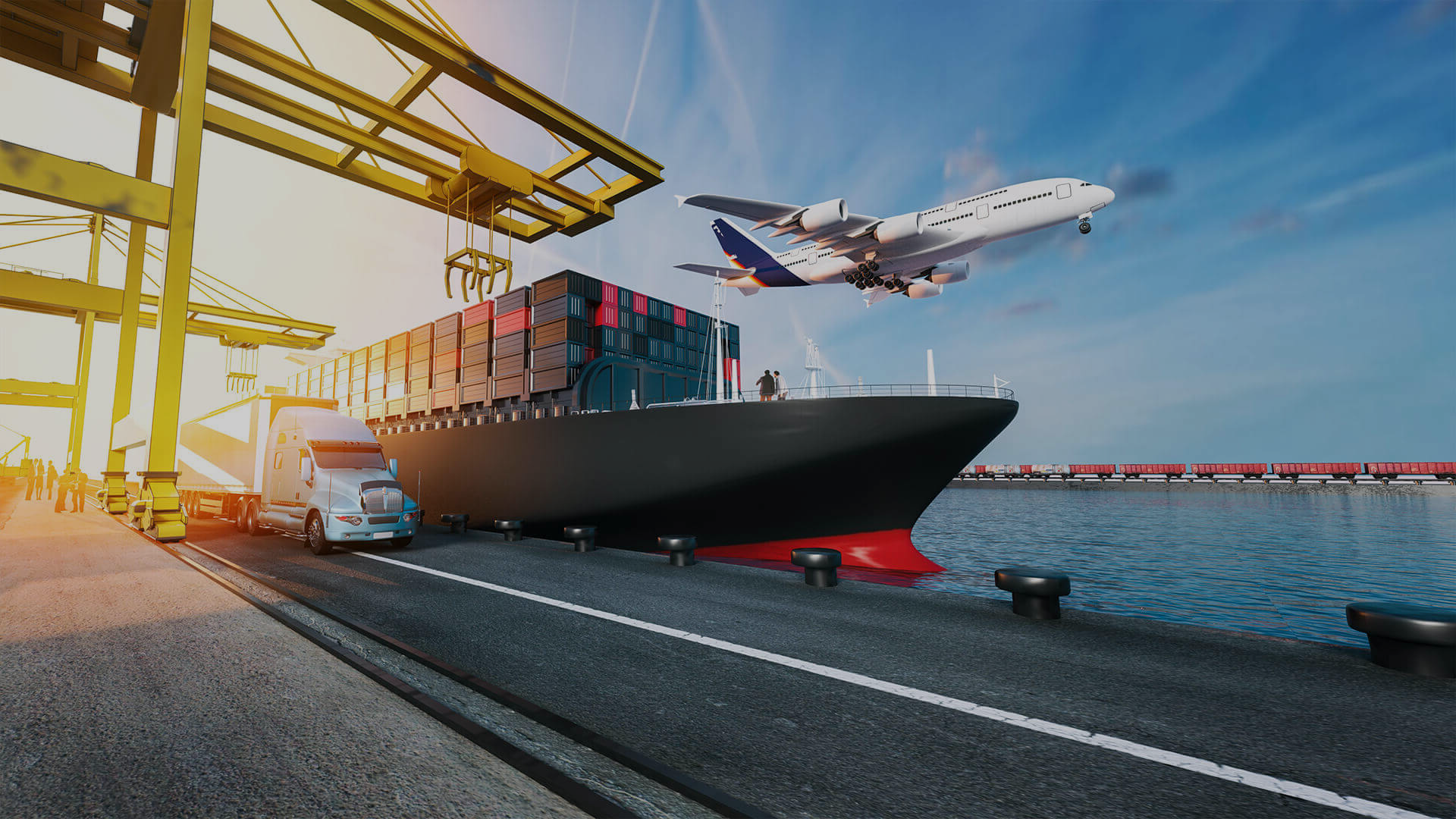Unlocking the True Value of Intermodal Logistics
As global supply chains grow more complex, businesses are under increasing pressure to reduce transportation costs while maintaining fast and reliable delivery. Intermodal Freight has emerged as a high-performance logistics strategy that answers both needs. By seamlessly combining different transport modes—such as rail, truck, and ship—without handling the freight itself during transfers, Intermodal Freight dramatically improves delivery times and drives down expenses.
Relying on single-mode transport introduces substantial risks in today’s volatile logistics landscape. Road congestion, rising fuel prices, driver shortages, and delivery delays all threaten reliability. Intermodal Freight provides a competitive advantage by optimizing transportation routes and balancing cost with speed. Its ability to flexibly adjust to disruptions and changing market conditions makes it a cornerstone of resilient logistics planning.In today’s volatile logistics environment, companies that rely on single-mode transport face increased risks: road congestion, fuel price hikes, labor shortages, and unpredictable delivery schedules. Intermodal Freight offers a competitive edge by optimizing routes, balancing cost-efficiency with transit speed, and adapting quickly to changing conditions. This flexibility makes it a core strategy for logistics resilience.
Cost-Reduction Strategies in Intermodal Freight
Lower Fuel Consumption and Operational Costs
Rail and maritime modes, which form the backbone of many Intermodal Freight operations, are significantly more fuel-efficient than road freight. On a per-ton-mile basis, trains consume far less fuel than trucks, especially over long distances. Using Intermodal Freight allows shippers to minimize reliance on expensive fuel-based road transport and avoid peak-season trucking rate surges.
Consolidation and Volume Discounts
Intermodal Freight enables freight consolidation at terminals, where containers from multiple shippers can be grouped to maximize load efficiency. This lowers the cost per unit by leveraging economies of scale. Many carriers also offer discounted rates for full-container loads and high-volume shipments, allowing businesses to optimize costs even further.
Reducing Idle Time and Enhancing Network Fluidity
Bypassing Congestion Points
With Intermodal Freight, companies can strategically avoid heavily congested highways and ports by routing cargo through efficient inland rail terminals and secondary entry points. This avoids delays and reduces the chances of missed delivery deadlines. Bypassing bottlenecks adds significant value in time-critical shipping scenarios.
Minimized Handling and Dock Dwell Times
Intermodal Freight is designed for seamless container transitions between modes, reducing the time cargo spends sitting at terminals or loading docks. Standardized container systems eliminate the need for reloading, lowering the risk of delay and damage. This not only speeds up transit but also improves shipment security.

Leveraging Infrastructure and Technological Gains
Intermodal Terminals as Efficiency Hubs
Modern intermodal terminals are strategically located and equipped with advanced handling equipment, allowing faster transitions between trucks, trains, and ships. These hubs form the cornerstone of Intermodal Freight efficiency, enabling 24/7 operations and reducing reliance on constrained road infrastructure.
Real-Time Tracking and Visibility
Today’s Intermodal Freight services integrate GPS, RFID, and IoT-enabled sensors to offer real-time cargo visibility. Shippers can monitor every leg of a journey, detect slowdowns, and reroute shipments instantly if needed. This proactive management reduces both lead times and uncertainty.
Faster Delivery Without Compromising Cost
Optimized Route Design
Using Intermodal Freight, logistics planners can combine modes in a way that offers the best trade-off between cost and speed. For example, a container might travel by rail for the long-haul segment, then switch to trucking for final delivery—bypassing highway bottlenecks while still achieving rapid service.
High Reliability with Time-Definite Services
Intermodal Freight is no longer seen as slow or inflexible. With dedicated schedules, coordinated rail-truck partnerships, and improved infrastructure, it offers time-definite delivery capabilities comparable to pure trucking. Many providers now guarantee transit windows, giving customers predictability at a lower cost.
Improved Supply Chain Planning and Risk Management
Predictability and Schedule Adherence
Rail and ship transport follow stricter schedules than over-the-road trucking, which is subject to traffic, road closures, and driver availability. By incorporating Intermodal Freight, companies can more accurately forecast delivery times, allowing for tighter inventory control and improved production planning.
Flexibility During Disruptions
Natural disasters, driver strikes, and port delays can cripple single-mode supply chains. Intermodal Freight introduces resilience through multimodal options—if one link is disrupted, others can often compensate. This flexibility significantly reduces the cost impact of unforeseen disruptions.
Strategic Business Advantages of Intermodal Freight
Scalable to Growing Demand
As businesses grow and order volumes increase, Intermodal Freight can scale without major increases in cost. The modular nature of containerized transport allows operations to expand while keeping unit costs low. This makes Intermodal Freight ideal for e-commerce fulfillment and international trade.
Sustainable and Brand-Enhancing
Shifting more freight to rail and ship lowers emissions, helping businesses meet environmental regulations and ESG goals. Consumers and partners increasingly favor companies that adopt green logistics strategies. Intermodal Freight supports these brand positioning efforts without sacrificing operational efficiency.
Industry Applications and Real-World Gains
High-Volume Retail and Distribution
Major retailers benefit from Intermodal Freight’s ability to handle high-volume, high-frequency shipments across regional and national markets. The blend of rail and truck ensures reliable restocking while minimizing shipping costs.
Manufacturing and Just-in-Time Supply
Manufacturers rely on Intermodal Freight to keep production lines moving. Predictable transit schedules and real-time tracking help synchronize inbound components with assembly timelines, reducing buffer stock and storage needs.
Intermodal Freight as a Long-Term Strategy
Investment in Infrastructure
Governments and private carriers are continuing to invest in intermodal terminals, double-stack rail routes, and faster port connections. These enhancements will further improve delivery speeds and reduce costs over time, making Intermodal Freight even more attractive.
Alignment with Global Trade Growth
As global trade expands, cross-border supply chains demand faster, more economical solutions. Intermodal Freight enables companies to move goods across long distances at lower cost and with greater dependability, making it a strategic cornerstone for international logistics.
FAQ
How does Intermodal Freight reduce shipping costs?
Intermodal Freight reduces costs by using rail and ship transport for long-distance hauls, which are more fuel-efficient and less expensive than road-only methods. It also leverages volume discounts and minimizes cargo handling.
Can Intermodal Freight improve delivery times?
Yes. By bypassing road congestion and using dedicated terminals, Intermodal Freight often delivers faster and more reliably than traditional trucking, especially over long distances.
What types of goods are suitable for Intermodal Freight?
Intermodal Freight works well for a wide range of products including retail goods, industrial parts, food and beverages, and time-sensitive materials. Its versatility makes it ideal for diverse industries.
Is Intermodal Freight reliable during supply chain disruptions?
Absolutely. Intermodal Freight’s multimodal structure offers routing alternatives during disruptions, making it a highly resilient option compared to single-mode logistics.
Table of Contents
- Unlocking the True Value of Intermodal Logistics
- Cost-Reduction Strategies in Intermodal Freight
- Reducing Idle Time and Enhancing Network Fluidity
- Leveraging Infrastructure and Technological Gains
- Faster Delivery Without Compromising Cost
- Improved Supply Chain Planning and Risk Management
- Strategic Business Advantages of Intermodal Freight
- Industry Applications and Real-World Gains
- Intermodal Freight as a Long-Term Strategy
- FAQ



